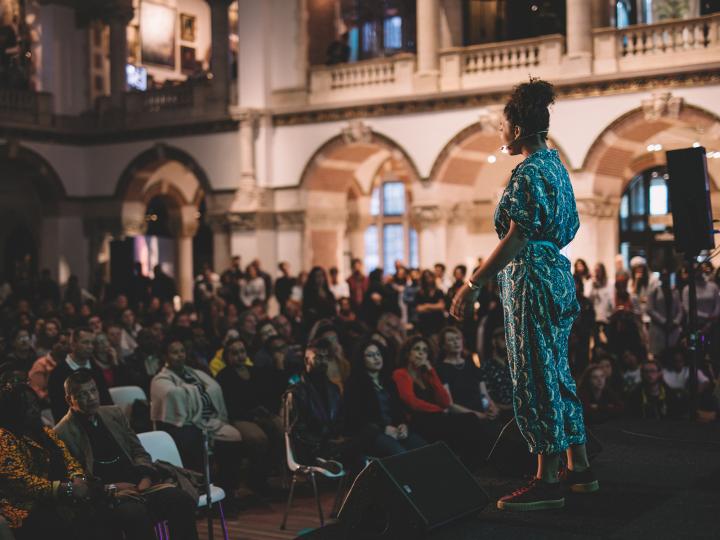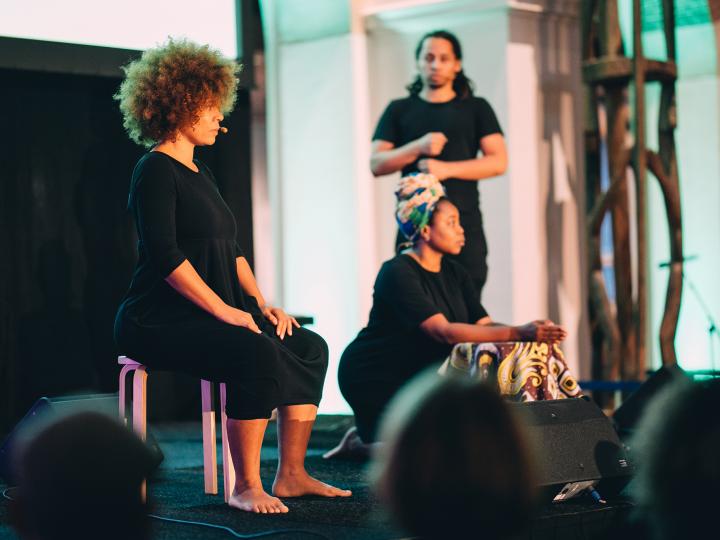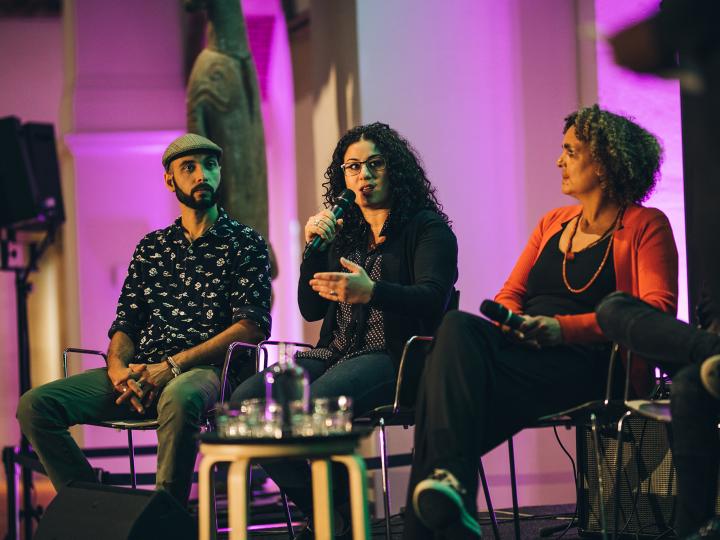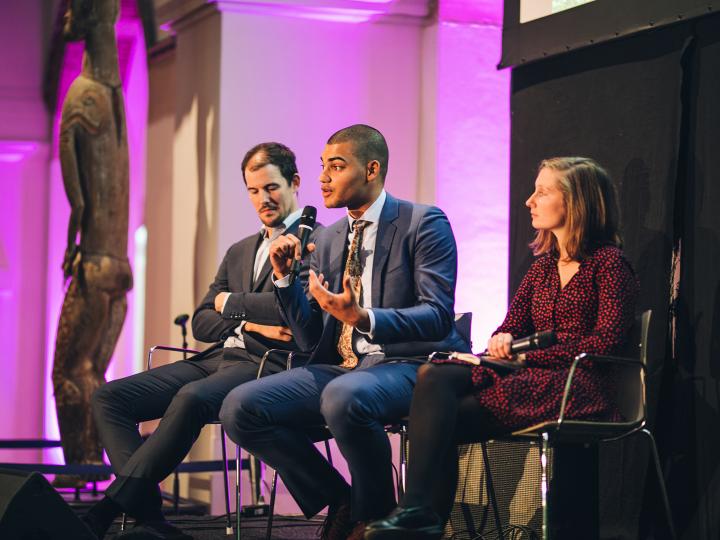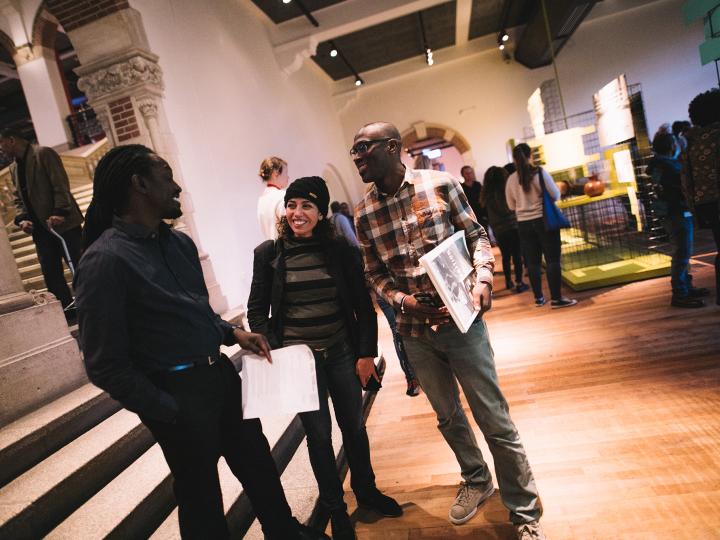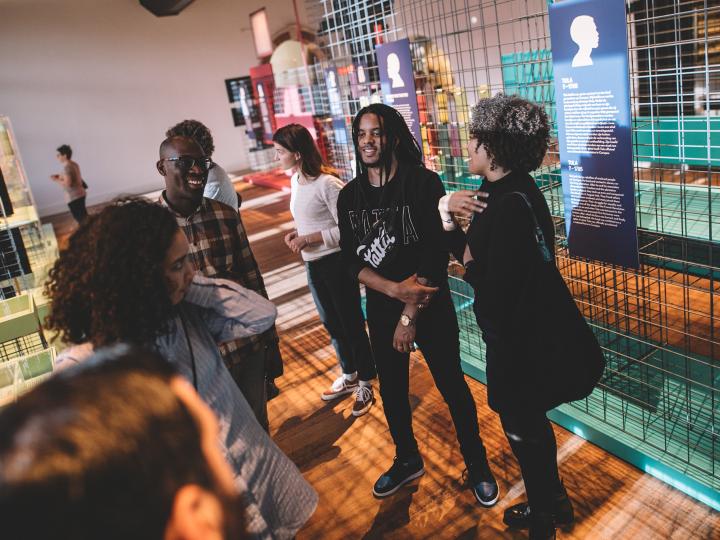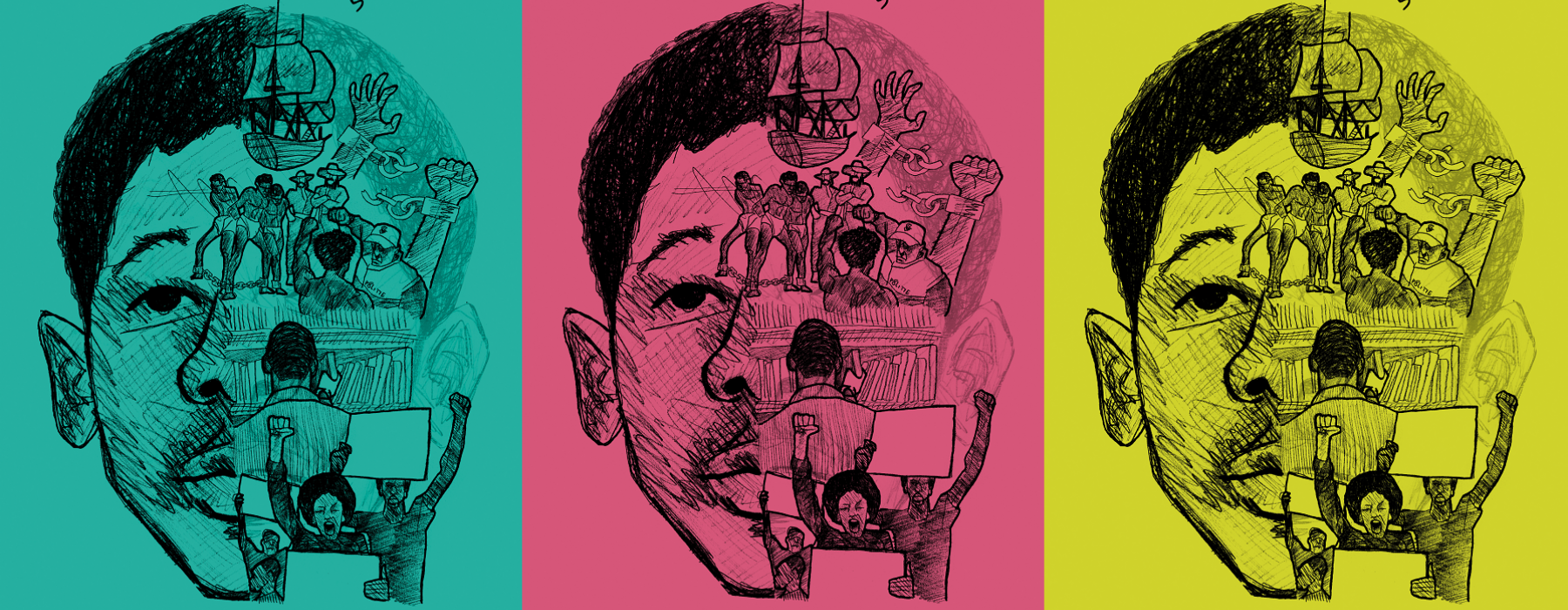
The opening symposium for Afterlives of Slavery brought together artists, scholars, and communities of interest for an afternoon of reflection on the exhibition’s themes. During talks, interviews and performances, attendants were invited to reflect on the heritage of colonialism and slavery and receive a behind the scenes look at the exhibition’s formation.
The symposium’s program consisted of:
- an interview of a panel consisting of prof. dr. Carolien Rieffe (Leiden University), Khadija al Mourabit (University of Amsterdam), Raul Balai, Fazle Shairmahomed, and Helen Sumter, on their professional experiences with slavery’s heritage
- talks by Martin Berger, Richard Kofi and Robin Lelijfeld on composing the exhibition
- musical performances by Zwart Licht and Izaline Calister,
- word and dance by Talentlab Poetry & Dance (Bijlmer Parktheater): Roziena Salihu, Taira Miguel, Jaleesa Grot and Perry Gits. Director: Babs Gons
- a spoken word performance by Katoen & Tabak collective: Babs Gons, Juan-Carlos Goilo and Dorothy Blokland
Moderator: dr. Aspha Bijnaar
The opening symposium for Afterlives of Slavery was organized by the Research Center for Material Culture (RCMC) at the National Museum of World Cultures, The Netherlands.
Photo credit: Kirsten van Santen
